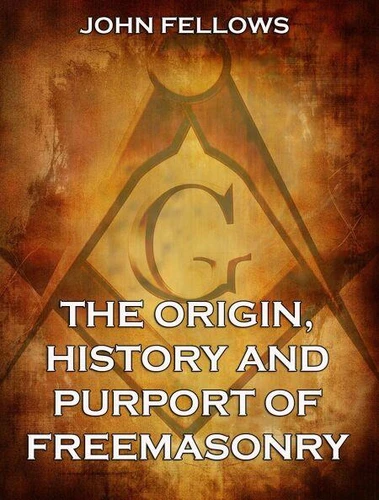The Origin, History & Purport of Freemasonry
Par :Formats :
Disponible dans votre compte client Decitre ou Furet du Nord dès validation de votre commande. Le format ePub est :
- Compatible avec une lecture sur My Vivlio (smartphone, tablette, ordinateur)
- Compatible avec une lecture sur liseuses Vivlio
- Pour les liseuses autres que Vivlio, vous devez utiliser le logiciel Adobe Digital Edition. Non compatible avec la lecture sur les liseuses Kindle, Remarkable et Sony
 , qui est-ce ?
, qui est-ce ?Notre partenaire de plateforme de lecture numérique où vous retrouverez l'ensemble de vos ebooks gratuitement
Pour en savoir plus sur nos ebooks, consultez notre aide en ligne ici
- Nombre de pages436
- FormatePub
- ISBN978-3-8496-3018-8
- EAN9783849630188
- Date de parution17/10/2013
- Protection num.Digital Watermarking
- Taille778 Ko
- Infos supplémentairesepub
- ÉditeurJAZZYBEE VERLAG
Résumé
The intention of this work is to endeavor to unravel the intricate web in which the mystery (of freemasonry) is involved, by tracing the order back to its source, and, by showing its intimate connection and similitude to institutions more ancient, put it beyond a doubt, that it sprang from and is a continuation of the rites and ceremonies observed in those establishments. That the writer, as a freemason, is extremely liberal, may be judged from his own reprobation of the oaths imposed upon members.
He considers a total abandonment of the oaths, at the present day, requisite. He says that the mysteries, from which the institution was derived, created, and that the custom of the times when it was established, sanctioned the most horrible oaths. The argument used, that these oaths are no longer necessary, is, we think, effectual against the existence of Masonry itself.
He considers a total abandonment of the oaths, at the present day, requisite. He says that the mysteries, from which the institution was derived, created, and that the custom of the times when it was established, sanctioned the most horrible oaths. The argument used, that these oaths are no longer necessary, is, we think, effectual against the existence of Masonry itself.
The intention of this work is to endeavor to unravel the intricate web in which the mystery (of freemasonry) is involved, by tracing the order back to its source, and, by showing its intimate connection and similitude to institutions more ancient, put it beyond a doubt, that it sprang from and is a continuation of the rites and ceremonies observed in those establishments. That the writer, as a freemason, is extremely liberal, may be judged from his own reprobation of the oaths imposed upon members.
He considers a total abandonment of the oaths, at the present day, requisite. He says that the mysteries, from which the institution was derived, created, and that the custom of the times when it was established, sanctioned the most horrible oaths. The argument used, that these oaths are no longer necessary, is, we think, effectual against the existence of Masonry itself.
He considers a total abandonment of the oaths, at the present day, requisite. He says that the mysteries, from which the institution was derived, created, and that the custom of the times when it was established, sanctioned the most horrible oaths. The argument used, that these oaths are no longer necessary, is, we think, effectual against the existence of Masonry itself.



